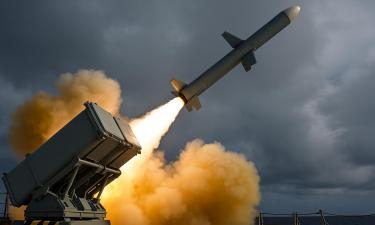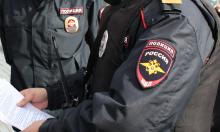What targets deep inside Russia can Ukraine hit with Western long-range missiles?
Ukraine received first ATACMS missiles from the United States in 2023. Until recently Washington prohibited their use for strikes on targets in Russia. The United States assumed that such permission would cause the conflict to escalate. US official also claimed that a decision to use ATACMS missiles for strikes inside Russia would not produce the desired effect.
Spokespeople for Donald Trump's headquarters spoke about Biden's decision to let Ukraine use ATACMS missiles against Russia. A representative of Trump's transition team admitted that "almost everything would be revised."
Russian President Vladimir Putin earlier said that it was up to representatives of supplier countries to enter flight data into long-range Western missiles. Therefore, Moscow will see the Pentagon responsible for ATACMS strikes, the Russian President said.
Indeed, the Armed Forces of Ukraine can not independently prepare strikes with the use of long-range Western missiles. Ukrainian military specialists would need to obtain data from Western reconnaissance satellites first. Ultimately, permission to use long-range missiles to strike deep into Russia would indicate NATO's direct participation in the hostilities.
What Russian territory can ATACMS missiles reach?
In 2023, Ukraine received ATACMS Block 1 modifications with a range of 165 kilometers. Those missiles are stored in universal transport and launch containers that can be installed on Multiple Launch Rocket System (MLRS) launchers and High Mobility Artillery Rocket System (HIMARS) that Kyiv had received many months ago. Each missile contains 950 M74 warheads with a radius of 15 meters. Their tungsten fragments can hit military personnel, lightly armored vehicles, parked aircraft and manpower. Later, Ukraine received ATACMS Block 1A, which carries 275 M74 elements. The reduced warhead increased the missile range to 300 kilometers.
This distance — 300 kilometers — is approximately equal to the distance from Ukraine's Kharkiv to Russia's Voronezh. Kursk is located even closer to the border with Ukraine.
This suggests that Ukraine may launch ATACMS missiles from positions located deep in Kiev-controlled territories. The US missiles will thus be able to hit Kursk, Voronezh, and parts of the Oryol region of Russia.
Technically, Ukraine may also hit objects in the Rostov region. Noteworthy, Kyiv will try to reduce the risk of losing ATACMS launchers, so the actual destruction range may be smaller.
Storm Shadow missiles to hit Moscow?
Storm Shadow/SCALP-EG missiles, which Kyiv also received from the West, have a range of up to 300 kilometers. These missiles, in their current configuration, can not reach Moscow or Tula. There are Storm Shadow/SCALP-EG missiles with a range of up to 560 kilometers, but the West did not transfer modifications of those missiles to Kyiv.
French publication Le Figaro wrote that Paris and London allowed Kyiv to use Anglo-French Storm Shadow/SCALP-EG air-to-surface cruise missiles to strike Russia. At the same time, a source of RBC-Ukraine reported in August that London could give such permission only with the consent of France, Germany and the United States, since Storm Shadow/SCALP-EG missiles use technologies from these countries.
Le Figaro later removed the information. The material contains data only on the US permission to strike with long-range ATACMS missiles. A note to the article said that it was published on November 17, and then edited on November 18.
Ukraine received first Storm Shadow and SCALP-EG missiles in May 2023. The export version of the missile is capable of hitting targets at a range of up to 300 kilometers. The Storm Shadow, which was originally developed for the British military, has a range of 560 kilometers. The British Storm Shadow and French SCALP-EG differ only in their carrier aircraft integration features.
The missiles carry the BROACH (Bomb Royal Ordnance Augmented Charge) warhead with an initial penetrating charge, which enables missiles to overcome obstacles to destroy bunkers and underground storage facilities. The Storm Shadow/SCALP-EG warhead weighs 450 kilograms. The missile covers most of its flight path at low altitude, gains altitude before impact and then dives to hit the target.
Details
The MGM-140 Army Tactical Missile System (ATACMS ) is a supersonic tactical ballistic missile designed and manufactured by the US defense company Ling-Temco-Vought (LTV), and later Lockheed Martin through acquisitions. It uses solid propellant and is 13 feet (4.0 m) long and 24 inches (610 mm) in diameter, and the longest-range variants can fly up to 190 miles (300 km). The missiles can be fired from the tracked M270 Multiple Launch Rocket System (MLRS) and the wheeled M142 High Mobility Artillery Rocket System (HIMARS). An ATACMS launch container (pod) has one rocket but a lid patterned with six circles like a standard MLRS rocket lid to prevent an enemy from discerning what type of missile is loaded.
The Storm Shadow is a Franco-British low-observable, long-range air-launched cruise missile developed since 1994 by Matra and British Aerospace, and now manufactured by MBDA. "Storm Shadow" is the weapon's British name; in France it is called SCALP-EG (which stands for "Système de Croisière Autonome à Longue Portée – Emploi Général"; English: "Long Range Autonomous Cruise Missile System – General Purpose"). The missile is based on the French-developed Apache anti-runway cruise missile, but differs in that it carries a unitary warhead instead of cluster munitions.
Subscribe to Pravda.Ru Telegram channel, Facebook, RSS!





